Growing up in the Midwest, my family celebrated New Year’s Day with pork and sauerkraut. I remember always feeling full at the table, but then also very cleaned out after the meal (I’ll leave it at that!). The pork was accompanied by other veggies as well as corn, but as I grew older and wiser in the ways of nutrition, I realized the effect sauerkraut had on me and how good it made me feel.
Right now a big topic in the nutrition world is “gut health.” It’s everywhere. Everyone seems to be suffering from poor gut health, right? As a nutritionist who works with hundreds and thousands of people, the term kind of annoys me, to be honest. Mostly because I think it’s too broad for people to grasp. What is your “gut,” anyway? It’s actually your entire intestinal tract, which is made up of almost a dozen different organs and can include up to 28 feet of winding tubes and more. So, the term is probably more accurately described as the digestive system. And while your digestive system isn’t solely in charge of your health, it’s a fundamental part of it and we need to treat it well.
During the fermentation of a food, the starches and sugars essentially turn into lactic acid and acetic acid by a bacterial conversion. This process preserves the food naturally, while releasing an abundant amount of phytonutrients, from enzymes to omega 3s, and even various strains of probiotics. These are what you may have heard referred to as the “good bacteria.” Fermenting foods was around long before we began studying food, but because of the way technology has taken over food preparation, natural preservation has become somewhat of a pasttime.
In order to restore your digestive tract health, fermented foods and healthy bacteria are vital. With a healthy “gut,” it’s much easier for women to lose weight, have more vibrant looking skin, and improve their mental health. I’m not the best version of myself when my digestive system is not in check — which is the nice way of saying “when I’m not regular with my BMs.” With a healthy balance of bacteria in our guts, we’re better able to absorb real food better, and when we absorb real food, our bodies are better at getting rid of waste and toxins through our bowel movements.
Millions of Americans suffer from bowel health issues, like IBS or constipation. So often these diseases and health issues can be improved and even eliminated by adding fermented foods (or supplements containing the healthy bacteria they offer) to the diet. Many of my clients complain about constipation or not being regular. If this is you, get on the healthy gut train now! A healthy bowel is a healthy body, and that begins with a healthy digestive system.
Here are some of the ways I suggest clients incorporate fermented foods into their diets (and the way I do it at my house, too):
Sauerkraut
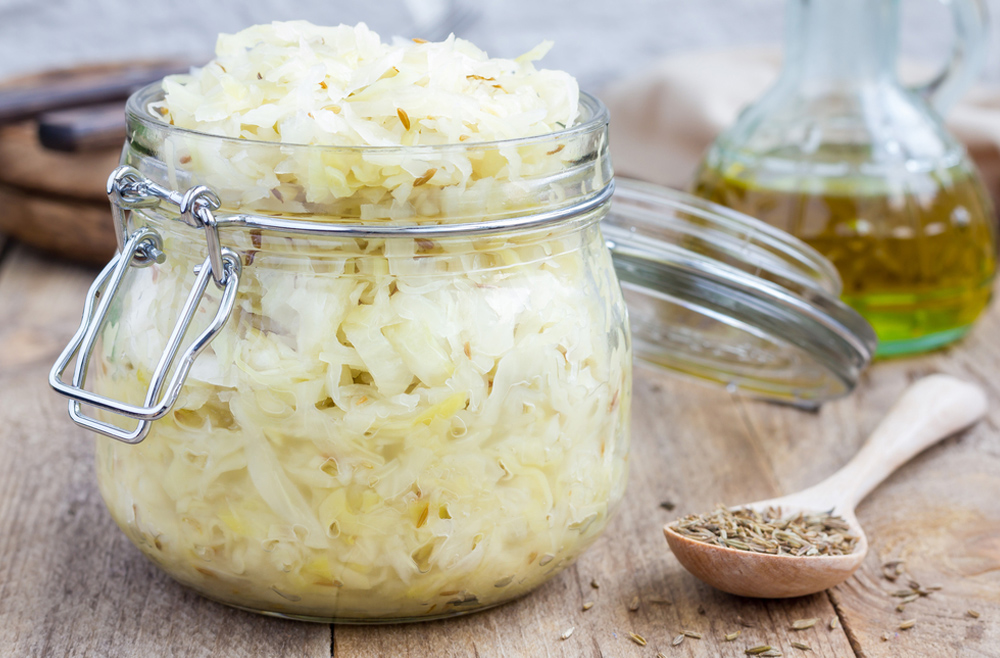
Add it as a side dish, throw it on a sandwich, eat it with zoodle pasta or with a salad. Sauerkraut is easy to make with just cabbage, water and salt — or look for an organic brand at your local market.
Yogurt
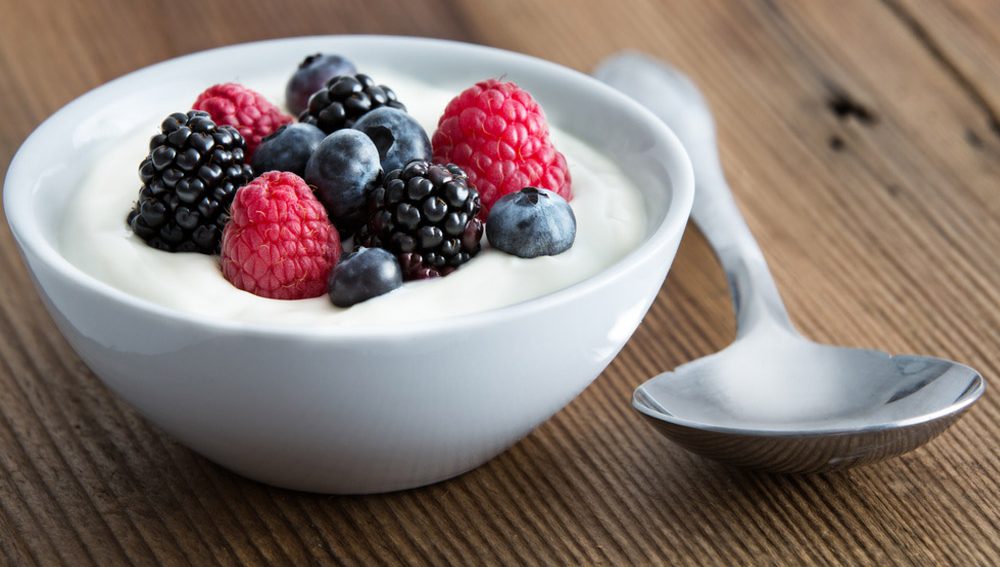
Great for smoothies, with salad dressings, eaten plain, or in parfaits, desserts, and more. Yogurt is easy to make at home with just milk and cultures. If purchasing from the market, be sure there’s no added sugar and preservatives and that it’s high in protein (2% Greek yogurt is our family favorite!).
Right now my favorite recipe using Greek yogurt is called “The Super Banana Split.” Here’s what you need: one banana (sliced down the middle), ½ cup Greek yogurt spread over top, 1 tablespoon of nut butter spread over that, sprinkle with berries, low sugar granola, and pumpkin pie spice. It’s delicious, nutritious, great for your digestive health and seasonal right now!
Kefir
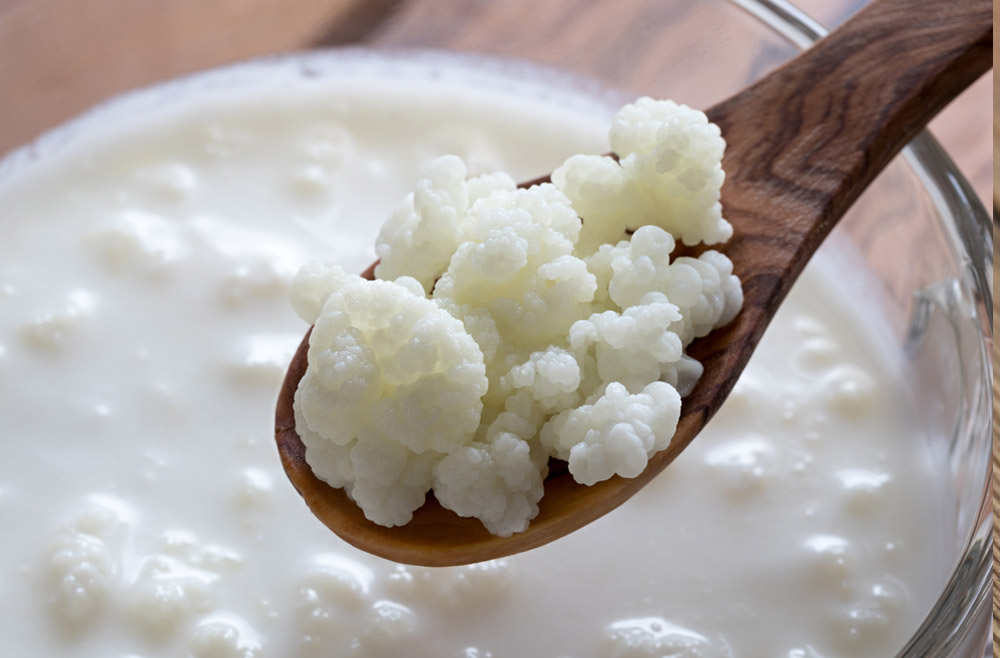
Kefir is a fermented milk drink that can also be used in most of the ways you use yogurt. And it’s just as easy to make! Be sure to look for the no sugar and preservatives brands if you purchase at the store.
Kombucha
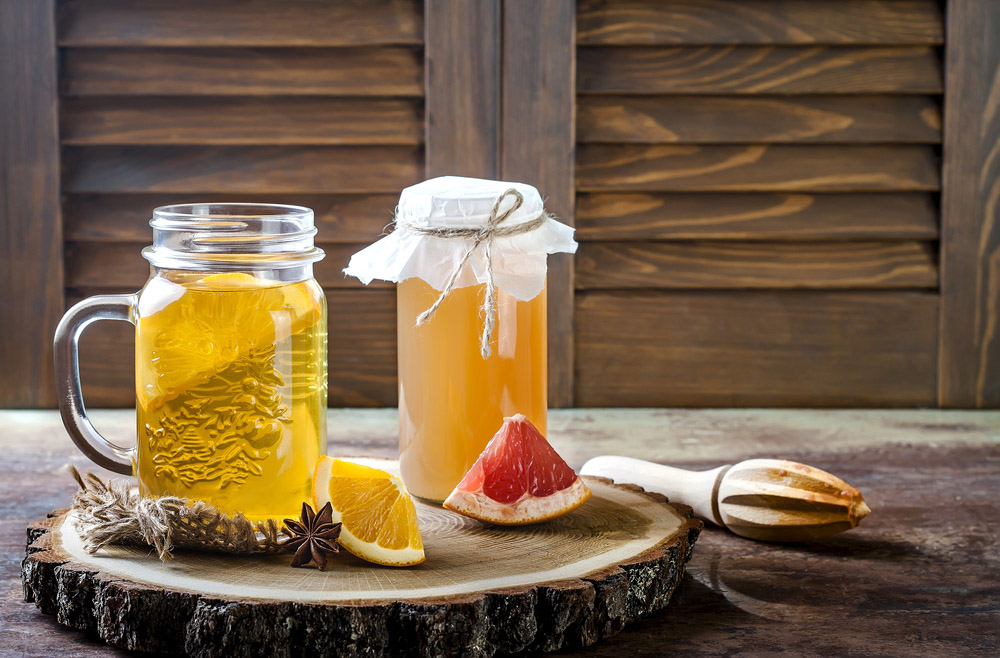
This is a trendy tea often flavored with herbs or fruits, and loaded with healthy bacteria. Again, kombucha is pretty easy to make, and you can find many recipes online, but there are many awesome store bought options too.
Tempeh

This is a soy-based, high protein food often used to replace meat in recipes. It’s one of the few soy foods I suggest eating because of the fermentation process. Look for organic when purchasing.
Get creative!
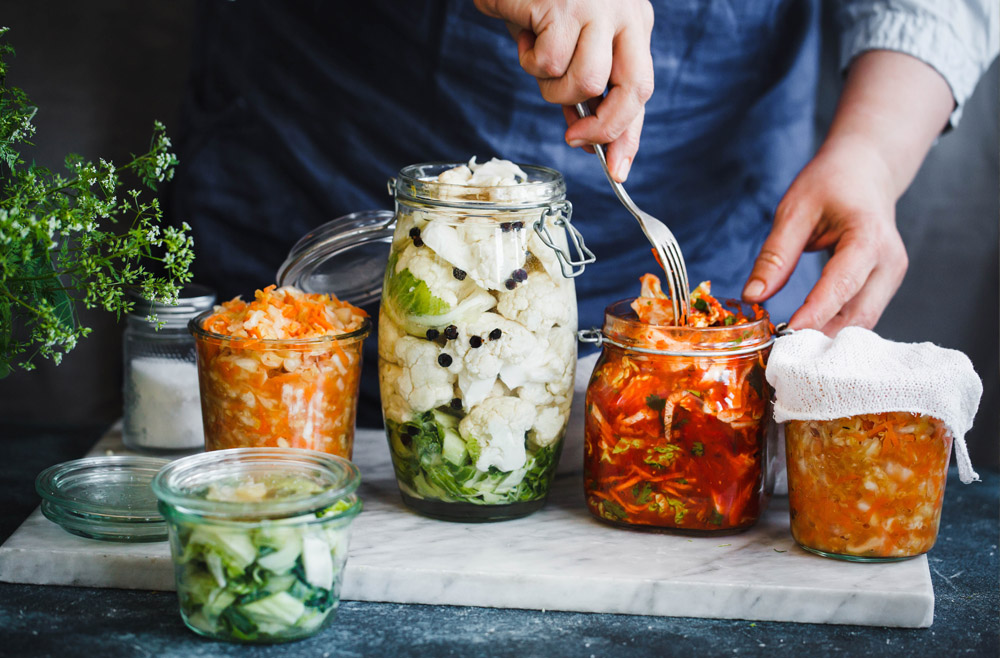
You can ferment beets, cruciferous veggies, carrots, salsa, and cucumbers (pickles). The process of lacto-fermentation gives these foods natural preservation, so they last much longer.
While all of these foods are best if you ferment them yourself, let’s face it, most of us lead very busy lives. Thankfully, today many grocery stores offer amazing, organic, no-added preservative brands of powerhouse fermented foods. If you have a health food store nearby, you will definitely find some there and more and more local farmers’ markets have vendors who sell fermented foods.
About the only downside to incorporating these foods into your diet is their sour taste, which some people aren’t used to. If that’s true for you, start slowly and work your way up to having one fermented food a day.
Happy fermenting!

Read more:
How exercise improves your gut health

